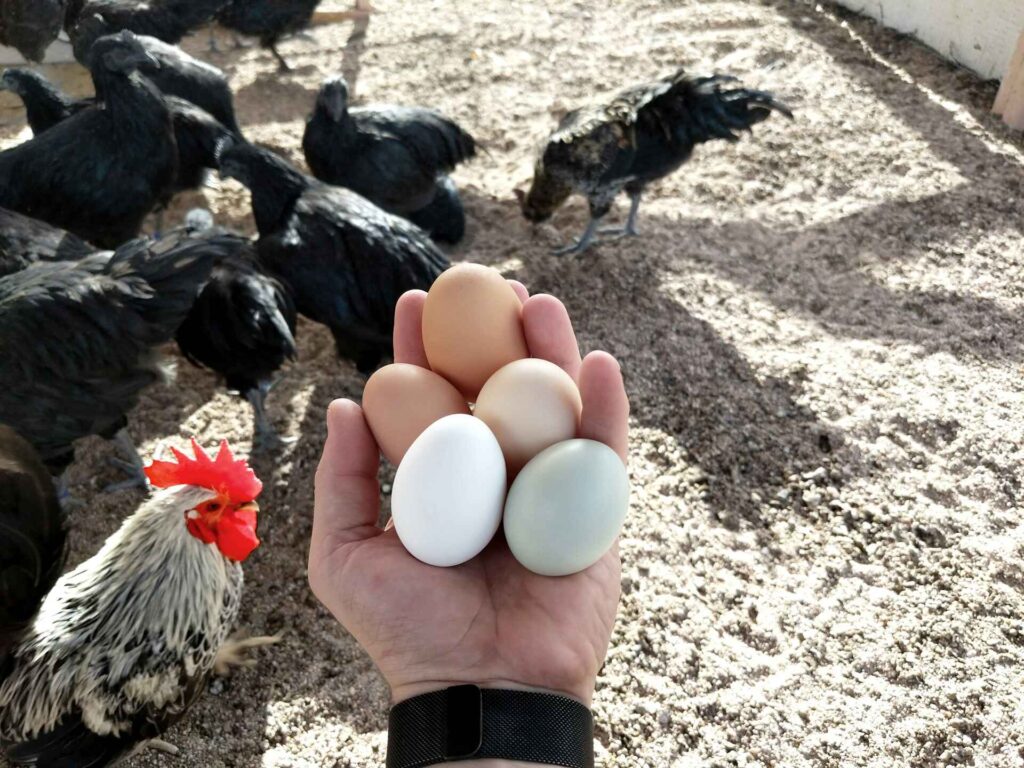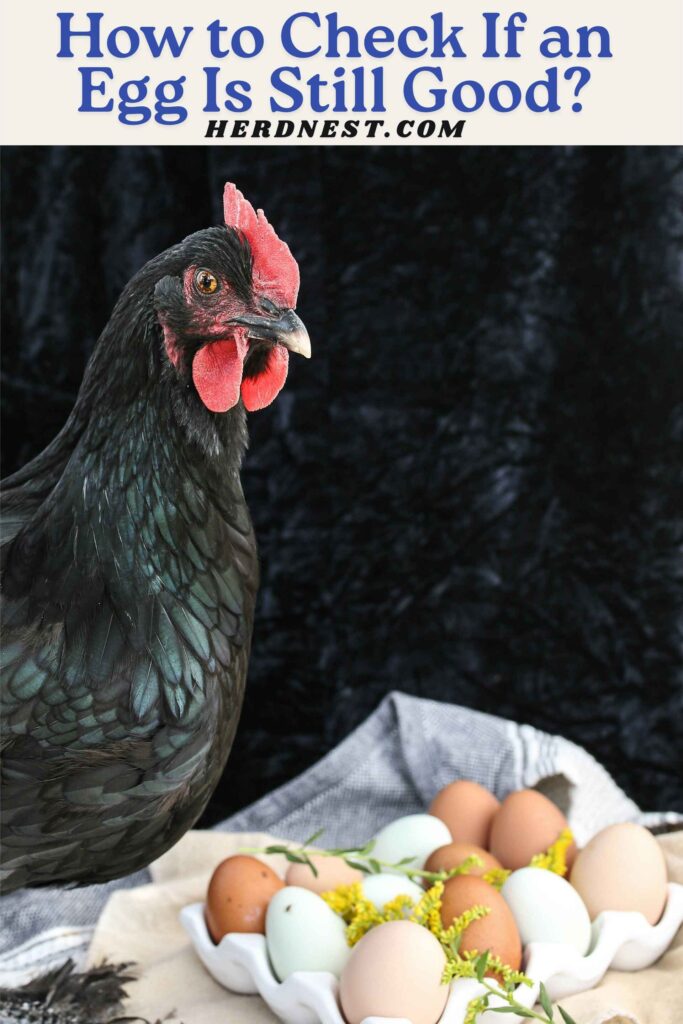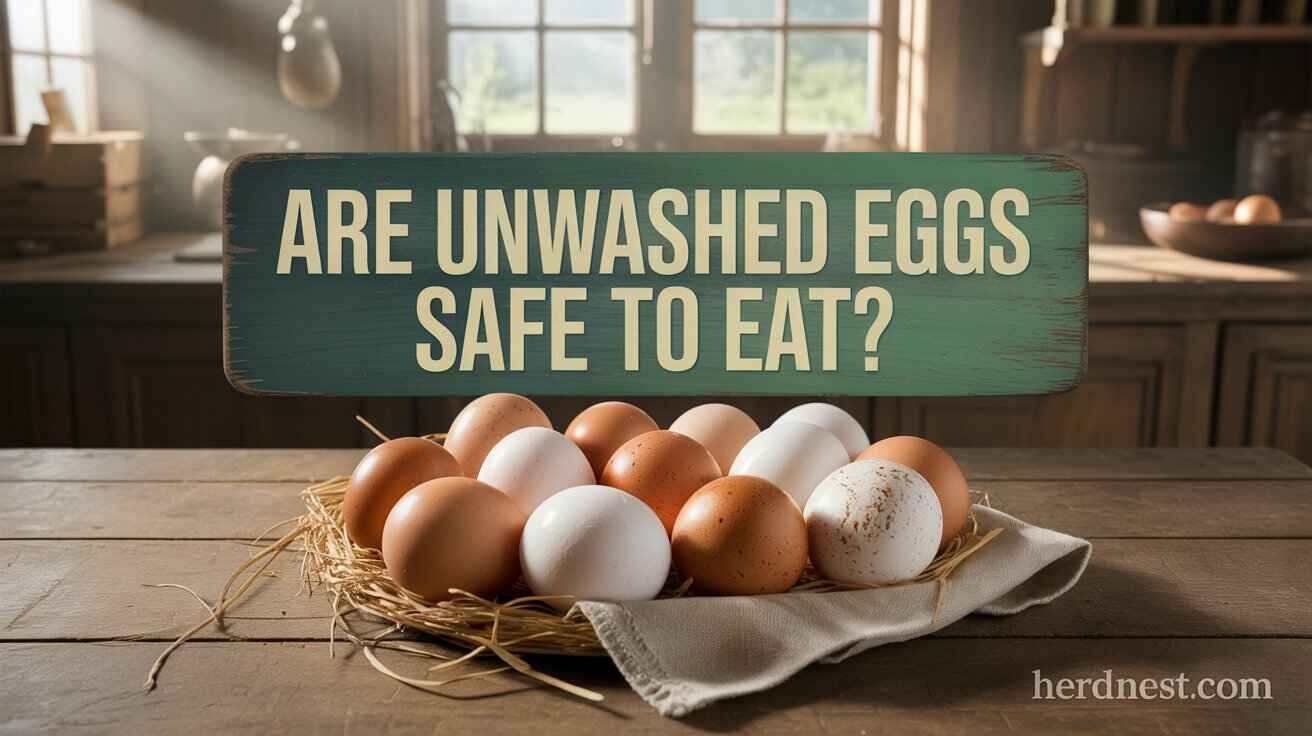There’s something special about collecting a fresh egg straight from the coop in the morning. It’s one of the best things about keeping chickens—you get to enjoy truly farm-fresh eggs for breakfast.
But when you have multiple hens laying daily, you’ll eventually find yourself with more eggs than you can use. The answer to “How long do they last?” depends on several factors, including cleanliness and refrigeration.
If stored right, they can stay good for weeks, but if left at room temperature, their shelf life shortens. The key is knowing how to carry and store them properly, ensuring they remain safe to eat. If you’re able to follow simple storage methods, you’ll always have great eggs ready to use!

Table of Contents
ToggleHow Long Do Eggs Stay Fresh?
To make eggs last longer, they should be stored in the refrigerator at the right temperature. The FDA advises keeping them below 40°F (4°C) to slow bacteria movement, which prevents spoilage.
If you buy eggs from a store, they are already purchased, transported, and stored under proper conditions, ensuring freshness. However, if you collect your own eggs, it’s best to keep them in their original carton at the back of the fridge. This helps avoid fluctuations in temperature when the door is opened, which can affect their shelf life.
If you need eggs to last even longer, you can freeze them, but you must separate the yolks and whites before storing them in a sealed container. Keep in mind that frozen eggs may have a different texture and work best in recipes rather than eaten on their own.
When eggs are stored properly, they can last for weeks or even months without issues. If you’re unsure of an egg’s freshness, a quick check can help—simply place it in water: fresh eggs sink, while older ones float. Always write the date on the carton to track how many days they have been kept.
How Long Can Fresh Eggs Stay Unrefrigerated?
Fresh eggs don’t always need to be stored in the fridge, but the choice to wash them or leave them intact can have a big impact on their shelf life. Eggs come with a natural bloom, a thin layer that helps protect the porous shell from bacteria.
If this layer is removed, you must refrigerate them for safety. However, if you decide to keep it, eggs can stay fresh outside at room temperature for weeks. Many store-bought eggs in markets are already old, as they go through cleaning and refrigerating before reaching the shelves.
To keep backyard eggs fresh longer, make sure your hens lay on clean straw and only wash them when cooking. If you must clean them, dab them dry rather than rinsing with water. Understanding when to put eggs in the fridge and when to leave them out means making the safest choice for storage.

How to Check If an Egg Is Still Good?
One of the easiest ways to tell if an egg is still fresh is by using the water test. Simply place the egg in a jar of cold water—if it sinks to the bottom and stays there, it’s fresh. If it begins to stand on one end, it’s still safe to eat, but not at its best quality. However, if it floats, it should be discarded, as too much air has entered inside.
Another way to check freshness is by cracking the egg on a white plate. A firm yolk and thick layers of whites indicate a fresh egg, while a contaminated or infected egg may have a slimy texture or an unmistakable bad smell.
If unsure, check the sell-by date on the carton or look for the printed date—eggs kept in the fridge can last for weeks beyond this. Cooking eggs to at least 160°F ensures safety, especially for those with a weak immune system or an illness.
Some people prefer runny yolks, but undercooked eggs can be risky. To be safe, it’s best to use fresh eggs for baked goods and properly cooked meals.
Best Ways to Use Older Eggs
If you have older eggs that haven’t gone bad, they are best for cooking methods that don’t require a firm structure. As eggs ages, their yolk and whites become runnier, making them a better choice for scrambled eggs, omelets, casseroles, and quiches.
Hard-boiled eggs also work well since the air pocket inside gets large, allowing them to be peeled easily. However, poached or fried eggs should be made with fresh eggs instead, as older ones can turn into a mess.
If you’re not sure how long an egg has been in the fridge, crack it open and do a sniff test. Older eggs can still be useful in baking, though they may be less effective as a leavening agent. If used properly, they serve almost any purpose in the kitchen.




